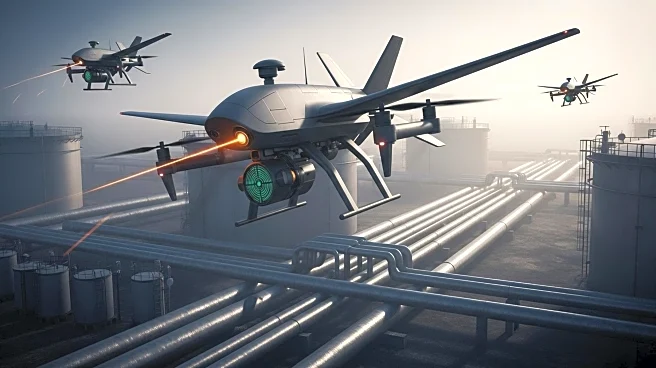What's Happening?
Ukrainian forces have executed a series of coordinated strikes on Russian fuel infrastructure and military sites, as reported by the Armed Forces of Ukraine (AFU) General Staff. The attacks targeted key logistics points, including the Ilsky oil refinery in Krasnodar Krai and the Druzhba oil pipeline in Bryansk Oblast. The Ilsky refinery, a significant facility in Russia's Southern Federal District, was hit by drone debris, causing a fire that was quickly contained. The Druzhba pipeline, crucial for transporting petroleum products from Belarus into Russia, was also attacked. These strikes are part of Ukraine's strategy to degrade the offensive capabilities of Russian troops and disrupt their fuel and ammunition supplies.
Why It's Important?
The strikes on Russian fuel infrastructure by Ukrainian forces represent a significant escalation in the ongoing conflict, aiming to undermine Russia's military logistics and economic stability. By targeting key energy facilities, Ukraine seeks to apply economic pressure on Moscow, potentially affecting Russia's ability to sustain its military operations. This development could lead to increased tensions between the two nations and may prompt further military and economic responses from Russia. The attacks also highlight the strategic use of drone technology in modern warfare, showcasing Ukraine's capability to extend its reach deep into Russian territory.
What's Next?
The immediate consequences of these strikes could include retaliatory actions by Russia, potentially escalating the conflict further. Additionally, there may be increased international scrutiny and diplomatic efforts to address the rising tensions. The effectiveness of Ukraine's strategy in disrupting Russian military logistics will likely be assessed in the coming weeks, influencing future military tactics and international support for Ukraine. The situation remains fluid, with potential for further developments as both nations navigate the complex geopolitical landscape.








